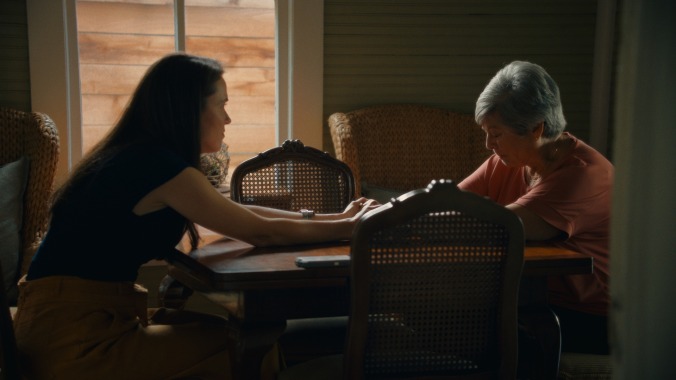
"Thomas' sister, Eliza Thomas, was 17 years old when she was murdered alongside three other teenage girls-13-year-old Amy Ayers, 17-year-old Jennifer Harbison, and Jennifer's 15-year-old sister Sarah-in Austin, Texas, in 1991. To be fair, Sonora was only 13 when her sister was murdered, and her family, burdened by grief, never openly talked about what happened to Eliza. Still, memory, as Brown expertly captures in his series, is a really tricky thing."
"True crime is a genre marked by sensationalism and fanaticism, but in Brown's telling of this horrific case, those traits aren't inherent as much as they're scrutinized. Instead, the series focuses on trauma's impact on memory, our understanding of memory at large, and the reverberations of violent crime -allowing it to eschew the genre's more exploitative tropes. "I didn't have any kind of ridiculous notion that I could solve it," Brown tells Jezebel in a video call. "I'm much more interested in the untraceability of memory, or how to say what a memory even is.""
Four teenage girls—Eliza Thomas (17), Jennifer Harbison (17), Sarah Harbison (15), and Amy Ayers (13)—were bound, shot in the head, and their yogurt shop set on fire in Austin, Texas, in 1991. Their bodies were discovered after the fire was extinguished, leaving much of the crime scene contaminated or washed away. More than fifty false confessions followed over decades, complicating investigations. The victim families endured long-term trauma; Sonora Thomas described managing the shame of forgetting and feeling guilty when others recalled more details. The case raises questions about the untraceability of memory and how trauma reshapes recollection.
Read at Jezebel
Unable to calculate read time
Collection
[
|
...
]